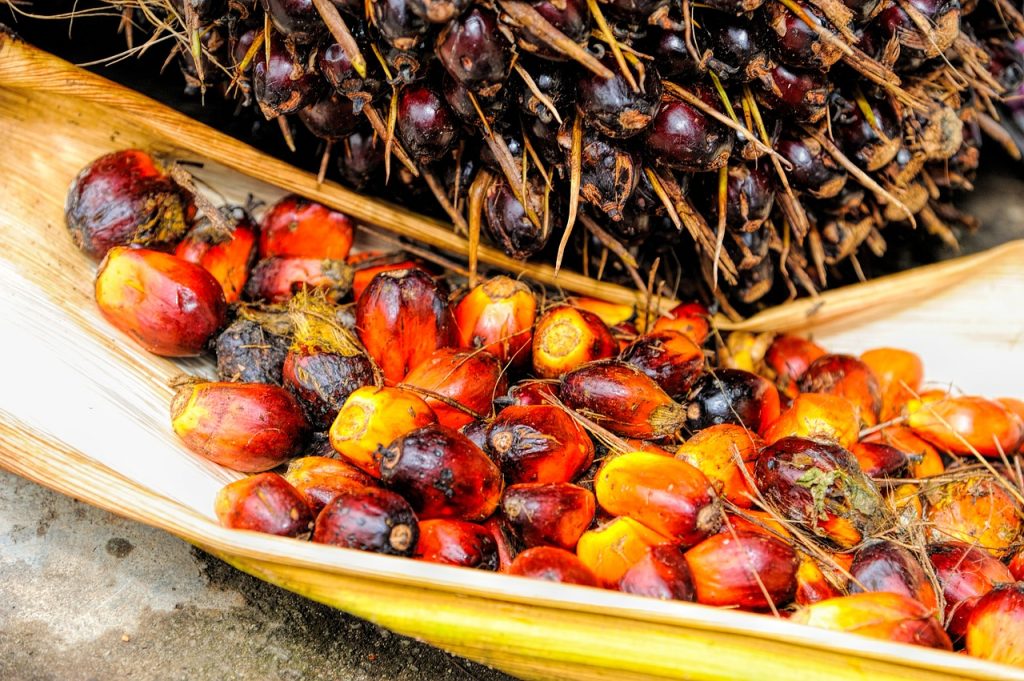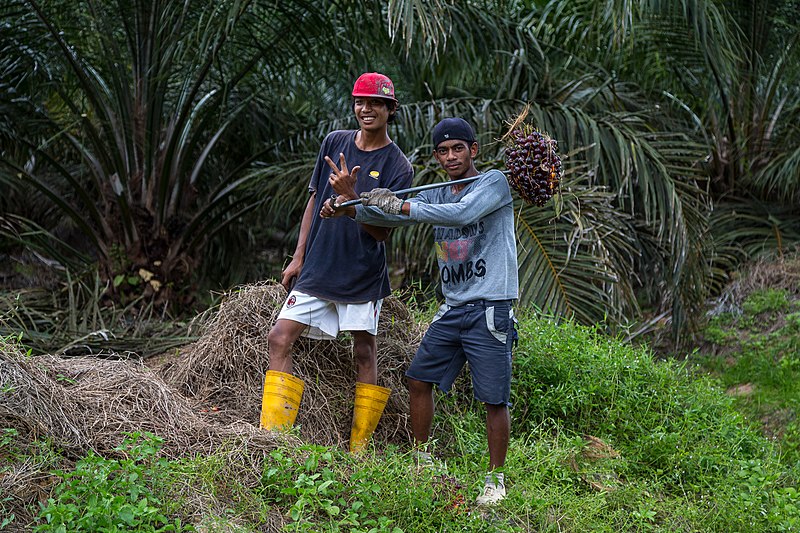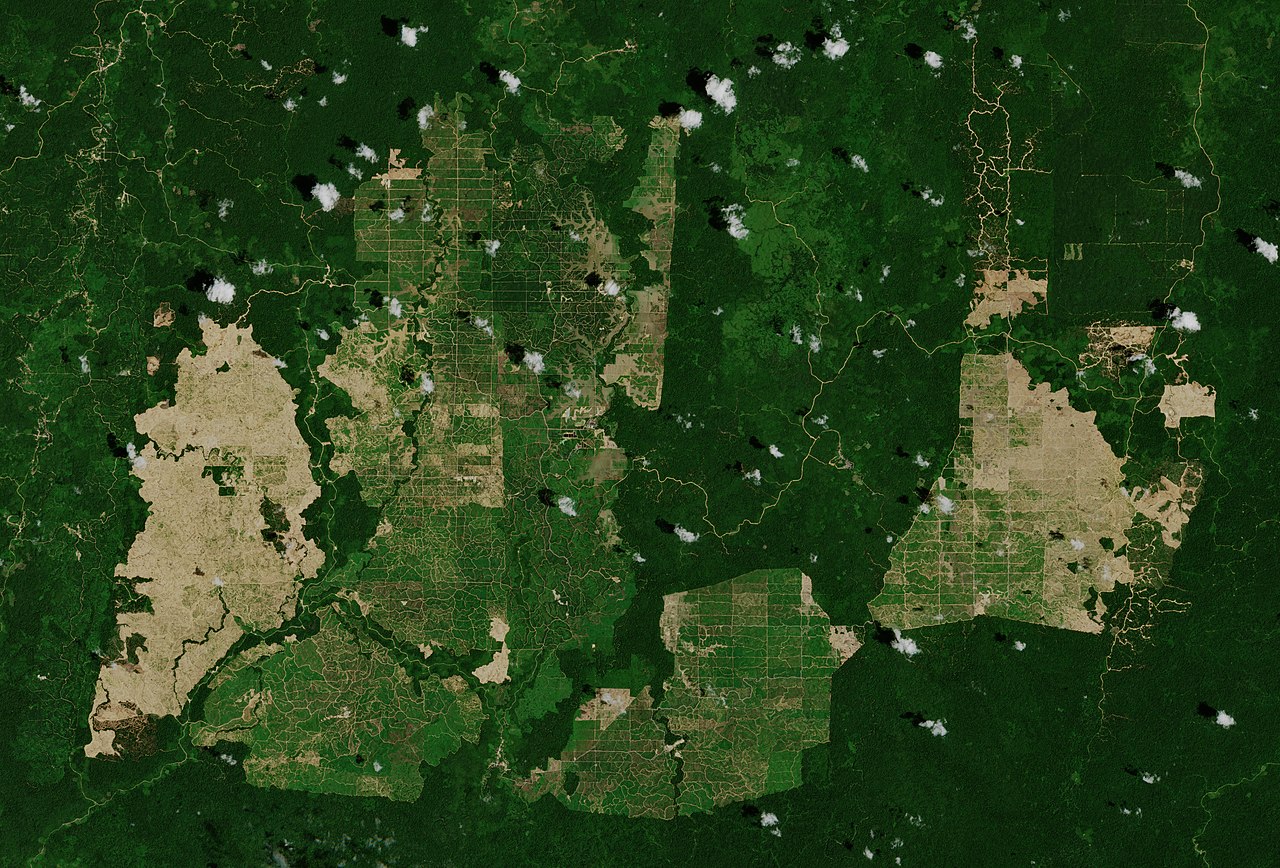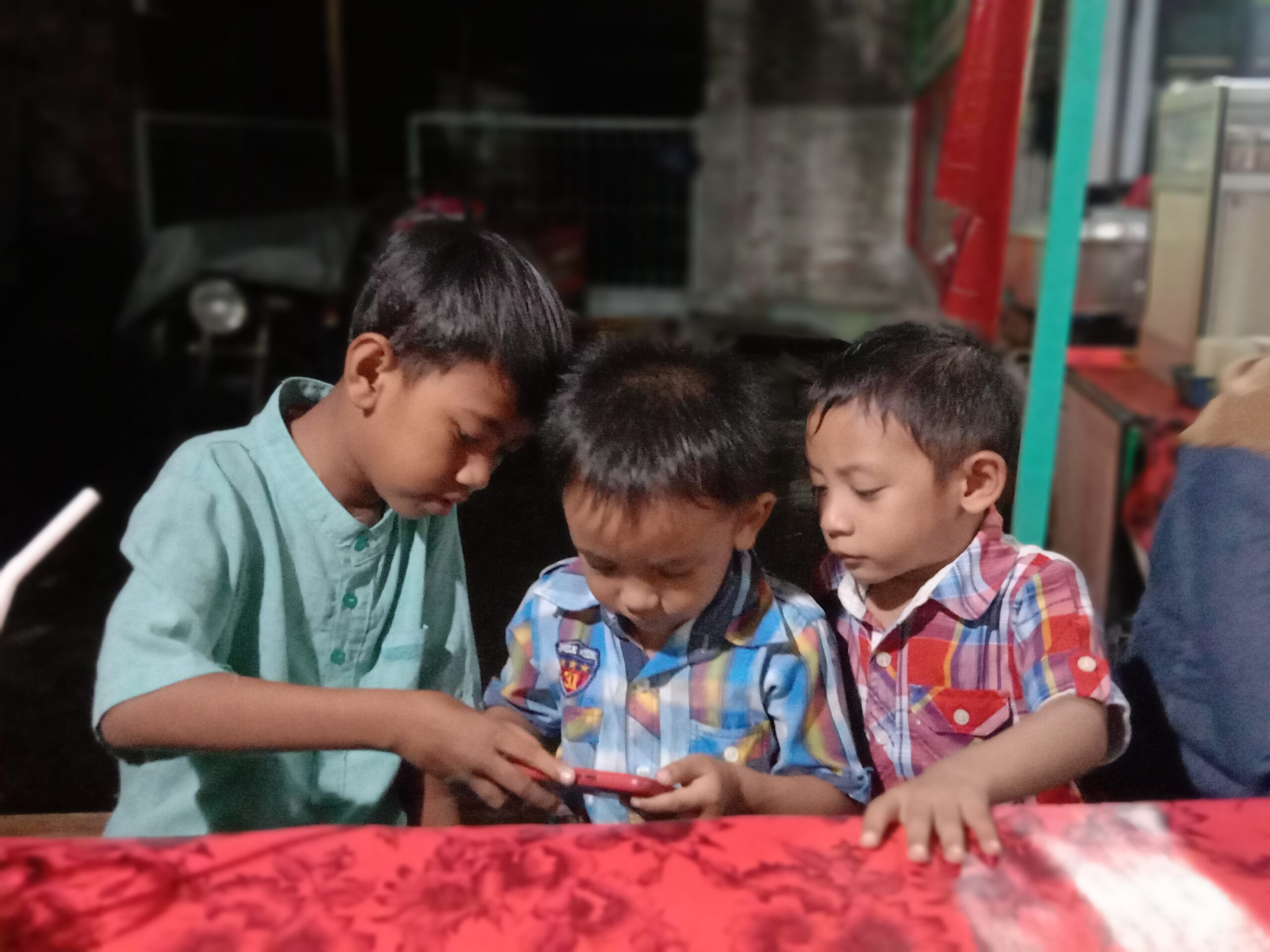Source >>>
Geronimo10 months ago

When we’re asked about the effects of palm oil industry or plantation, we definitely can name the bad ones. We’ve seen and known enough of horrible videos and negatively impacted wildlife/environment stories because of this type of vegetable oil. So, it’s understandable that a lot of people dislike it or ban it from their lifestyle.
But, what we see usually is only one side of the story. In a new study published in the Annual Review of Resource Economics, agricultural scientists from the University of Göttingen and the IPB University Bogor, Indonesia, show that palm oil has contributed considerably to economic growth and poverty reduction in local communities, particularly in Asia.
For the study, the researchers evaluated results from over 30 years of research on the environmental, economic and social consequences of oil palm cultivation in Africa, Asia and Latin America.
Then, they combined the that evaluated results with their own data from Indonesia, which they have been collecting since 2012 as part of an interdisciplinary German-Indonesian Collaborative Research Centre (CRC 990).
Home to a lot of distinctive flora and fauna species, Indonesia is the largest palm oil producer and exporter in the world. A large proportion of the palm oil produced in Indonesia is exported to Europe and the USA, where it is used by the food, fuel and cosmetics industries.
Let’s stop the production of palm oil…?

While the research does show that palm oil plantations in some regions of the world, especially Indonesia and Malaysia, contributes to tropical deforestation, the loss of biodiversity, substantial carbon emissions, and other environmental problems, banning palm oil production and trade altogether, that won’t solve the problem.
I get it. When we see the devastation caused by palm oil industry, we just want to act, we just get so angry and upset. All that wildlife like orangutans and the major deforestation always keep us wary of this particular oil. We can be very quick to say palm oil is evil. But according to this research, changing palm oil into something else won’t help.
Professor Matin Qaim, agricultural economist at the University of Göttingen and first author of the study said, “The reason is that oil palm produces three times more oil per hectare than soybean, rapeseed, or sunflower. This means that if palm oil was replaced with alternative vegetable oils, much more land would be needed for cultivation, with additional loss of forests and other natural habitats.”
Some people are quick to be dismissive when it comes to economy, but banning palm oil will result in negative economic as well as social consequences in the producing countries.
“It is often assumed that oil palm is only grown on large industrial plantations. In reality, however, around half of the world’s palm oil is produced by smallholder farmers. Our data show that oil palm cultivation increases profits and incomes in the small farm sector, in addition to raising wages and creating additional employment for rural labourer,”
“Although there are incidents of conflicts over land, overall the oil palm boom has significantly reduced rural poverty in Indonesia and other producing countries,” said Qaim.
Also, let’s not forget that some people in these producing countries can’t afford the better, healthier, eco-conscious alternatives because of their financial matters so they have to use palm oil in their daily lives. It’s the economic and social considerations that make things complicated.
Ban it through lifestyle, not the whole production

So what will be the better solution for this then? Professor Ingo Grass, agricultural ecologist at the University of Hohenheim and co-author of the study, stated that we should make the production more environmentally and climate-friendly.
“High yields on the already-cultivated land are important, in order to reduce additional deforestation. Mosaic landscapes, where oil palm is combined with patches of forest and other crops in agroforestry systems, could also help to protect biodiversity and ecosystem functions,” said Grass.
The authors conclude that developing and implementing more sustainable production systems are challenges which require both innovative research and policymaking. Clearly and fairly defined land rights and improved access for smallholder farmers to training, credit and modern technologies would be important steps forward.
What about us? According to the researchers we can still choose the palm oil ban lifestyle and do things or use things that are eco-conscious as well as avoiding waste whenever and wherever possible.
A bit of story from the industry’s side

Palm oil plantations in East Kalimantan. Photo by European Space Agency (ESA) Wikimedia Commons
Like Indonesia, Guatemala is also a major palm oil producer. Plantations in this country have been under pressure to prove they’re environmentally sustainable. Some do it half-heartedly and some do it with good intent.
But, the official process is time consuming and costly. And if they do achieve sustainability, plantations still often clash with local communities over the rights to land and natural resources.
Las Palmas is one of the plantations certified sustainable by the RSPO. Which is good, but the journey to get to this point takes a lot, and strict sustainability guidelines continue to cause it stress.
For Las Palmas, the path to sustainability started with an ultimatum. In 2015, its biggest customer, Walmart, said the plantation would need to obtain a sustainability certificate to continue supplying for it. The American retail giant had pledged to use only sustainable palm oil in its private-label products by the end of 2020.
Las Palmas president Oscar Molina said, “That’s what the customer wants nowadays. They want sustainable products that are not going to harm you and are not going to harm the environment, and that are cost-effective.”
So the president of the company acknowledges that and his company is striving to achieve that goal. It’s admirable because Las Palmas is smaller than another certified sustainable company, Palmas del Ixcán, but they want to improve. Unfortunately, the process of obtaining that certificate and keeping it is taking a toll on the business.
Molina said he had to research local laws, hire personnel, and work closely with local communities to work toward certification, which the plantation obtained in August 2016.
“The certification actually opened our eyes and that we need to comply with all the laws. Sometimes you don’t even know what laws applied to your company or to (your) industry. It just takes time, but you can do it,” said Molina.
Additionally, the company needs to pay a lot of money. Every year, Molina has to spend $17,000 on audits alone. “Every year we need to be recertified. Every year we get audited, and we actually pay for that audit,” said the company’s president.
The time they made it and didn’t

After obtaining the sustainable certification, Las Palmas managed to keep supplying Walmart for a couple of years. We’re using past tense because the company is no longer a Walmart client.
Being sustainable takes a sum of money, so from a business perspective, raising the price of the product needed to be done. Walmart wanted Molina to drop his prices, but he couldn’t sell for less.
In an email to Business Insider, a Walmart spokesperson said that this “severance” was a business decision based on a variety of factors like price, quality, and demand.
“Walmart makes business decisions with suppliers based on a variety of factors such as price, availability, quality, customer demand, and factory audits and sourcing certifications across our global retail markets,” the statement read.
Palmas del Ixcán’s situation is no better because they lost a major client: Mars. This manufacturer is known for making Snickers and Milky Way candy bars and they’ve dropped the plantation from its list of palm oil providers. The company is reducing the number of mills it sources from, from 1,500 to 100 by the end of this year.
“This is part of our ongoing program to simplify our palm oil supply chain, and to award longer-term contracts to suppliers who commit to and deliver palm oil supply chains that meet our expectations,” a Mars spokesperson told Business Insider.
We want to be sustainable and eco friendly in a lot of things so that we can have better environment and better Earth, but we also need to remember that we must consider other aspects as well. That’s just my opinion, though. What do you think?
Sources
https://www.sciencedaily.com/releases/2020/05/200519140425.htm
https://www.businessinsider.com/palm-oil-plantation-sustainable-environment-guatemala-2020-4?r=US&IR=TCategories: Hello Earth

